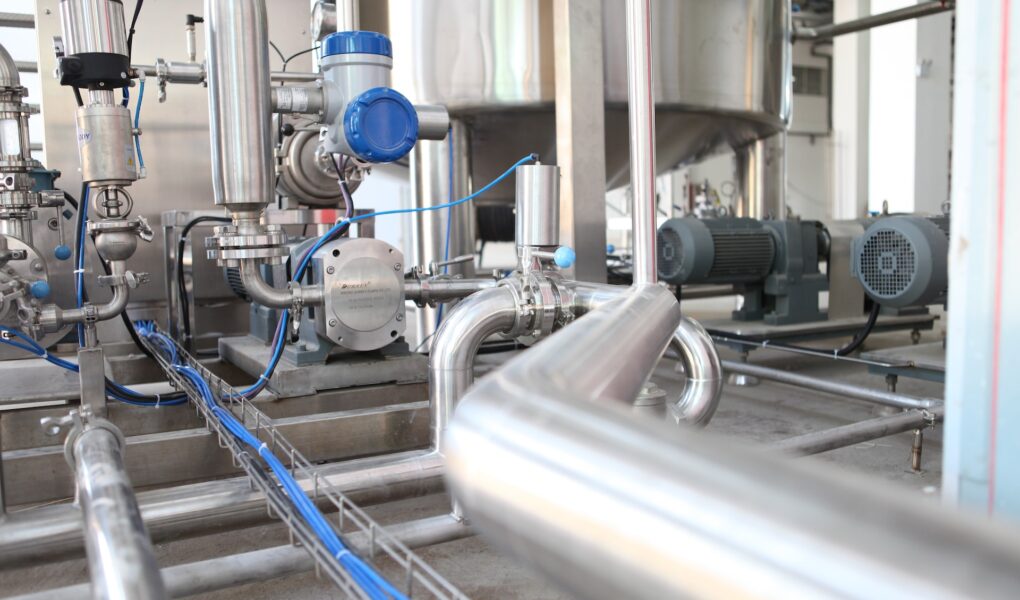Industrial filtration is a vital aspect of the manufacturing industry. It is essential to keeping your equipment clean and reducing maintenance costs. There are many different types of filtration, including liquid and Activated carbon. These are discussed in this article.
Liquid filtration
Liquid filtration involves the removal of solids and contaminants from a fluid stream. It is used in a wide variety of industries and applications.
Liquid filtration is used in the manufacturing and processing of foods and beverages. It protects the quality of the food by removing unwanted materials. A filtration process requires precision.
In many liquid filtration processes, an aqueous medium is used. Filtering equipment is also used for petroleum and hydrocarbon fluids. The chemical and pharmaceutical industries are significant users of filtration equipment.
Many different material media can be used to remove suspended contaminants. Nonwovens, for instance, can be used as a membrane medium. However, it is not considered an absolute purification technique.
When choosing a filter, several factors need to be considered. One of the most important is permeability. Another factor is micron rating. It refers to the number of particles that can pass through the medium. The nominal micron rating ranges from 65 to 98%. Several other factors affect the efficiency and load capacity of the filter.
Activated carbon
Industrial process filters Virginia use activated carbon as a treatment for various applications. Water and air impurities can be removed using activated carbon as an adsorbent. It is a powerful adsorbent with a high surface-to-volume ratio and little gas flow resistance.
Typically, activated carbon has a microporosity, which increases its adsorption capacity. The average diameter of activated carbon is less than one millimeter, and the maximum is around one centimeter. The porous structure makes it versatile, as it can be used in various applications.
There are two basic types of activated carbon: granular and powder. Granular activated carbon is mainly used for water treatment. Powdered activated carbon is used in the food and beverage industries.
Activated carbon can be manufactured from coconut shells, peanut shells, and wood products. The amount of activated carbon that needs to be produced will vary depending on the purity required.
In addition to its use as an adsorbent, activated carbon is also used for other purification processes. Some of its typical applications are as a food additive, pesticide, and odor control.
Nonwoven fabric filter bags
Nonwoven fabric filter bags are widely used in industries prone to contaminant exposure. For example, the chemical plant industry needs to protect its workers from the risks of high exposure to toxic substances. These nonwovens are manufactured with specific features that can help increase their usefulness.
For example, composites can be made of fibers of different lengths and orientations. It helps inhibit medium migration and particle fallout. They can also be coated with membranes and fine/nanofibers to provide more effective performance.
Another standard method is to impregnate the nonwoven with activated carbon. The technique can be applied through printing or chemical binders. It is often used in industrial and medical applications.
Composite textiles are typically used in applications that involve high temperatures. They are helpful in gas purification and air demister applications. Their unique ability to retain or release static charges is vital for cleanroom applications.
Fiberglass is an excellent example of a composite textile. It is a blend of fibers and foam.
Market segmentation
The manufacturing industry is characterized by many factors driving the growth of the market segmentation for industrial filtration. One of the major drivers is the growing need for a safe working environment. It can be achieved by implementing government policies on occupational safety and health.
Another major factor is the increase in the use of advanced technologies. These technologies can reduce manufacturing costs and provide a safer working environment. In addition, these technologies can also minimize the impact of industrial waste on the environment.
Another critical driver of the market is the emergence of new raw materials. Many manufacturers are investing in developing innovative filter media and increasing their production capacity. Moreover, the rising demand for clean energy is another primary driver of the industrial filtration market.
Another factor contributing to the growth of the industrial filtration market is the development of industries in developing countries. Countries like China and India are expected to create strong demand for the industrial filtration market. Moreover, increasing environmental regulations will also likely boost the need for the industrial filtration market.




